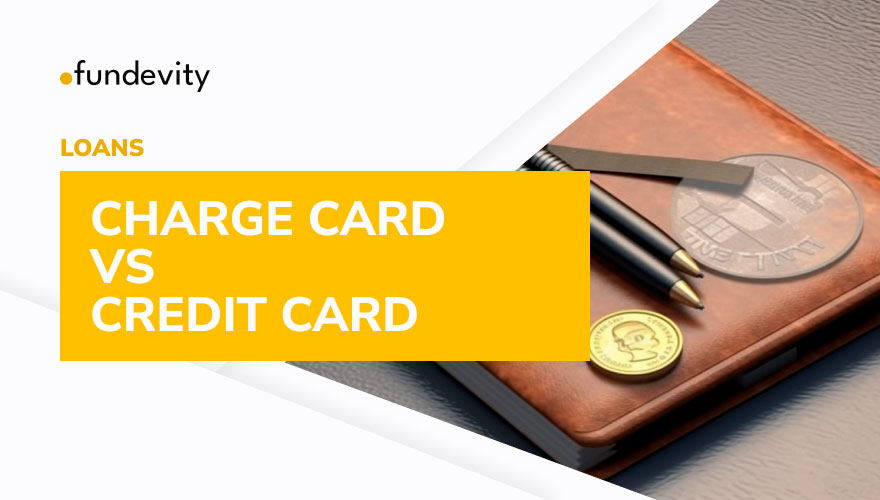Charge Card vs. Credit Card: What’s the Difference?

In the world of personal finance, credit cards and charge cards are two common tools that individuals use to manage their expenses. While these cards may appear similar at first glance, there are differences between the two.
Understanding these differences is crucial for making informed financial decisions and selecting the best option for your specific needs. To assist you to choose the best card, this article compares charge card vs. credit card.
How Charge Cards Work
Charge cards are a type of credit card that require cardholders to pay their balance in full each month. Unlike traditional credit cards, which allow users to carry a balance from month to month, charge cards must be paid off in full by the due date listed on the statement.
When a charge card is used to make a purchase, the card issuer pays the merchant for the transaction, and the cardholder is then responsible for paying the full amount charged to the card.
Charge cards can be a useful tool for individuals who are able to consistently pay off their balances in full each month, as they allow users to make purchases without incurring interest charges or fees. However, it is important for users to be mindful of their spending and to have a plan in place to pay off their balance each month to avoid accumulating debt.
How Credit Cards Work
Credit cards are a type of payment card that allows users to make purchases and borrow money from a financial institution, known as the card issuer. When you use a credit card to make a purchase, the issuer pays the merchant for the transaction and the cardholder is then responsible for paying back the borrowed amount, plus any interest or fees that may apply.
Credit cards typically come with a credit limit, which is the maximum amount a user can borrow at any given time. The credit limit is based on various factors, such as the user’s credit history, income, and other financial information.
Users can choose to pay off their balance in full each month, which helps avoid interest charges and other fees. However, if the balance is not paid in full, interest charges will apply to the remaining balance. This results in an increase in the total amount you owe to credit company.
Choosing the Right Card
It’s crucial to think about your financial goals and spending habits while deciding between a charge card vs. credit card.
If you’re someone who can consistently pay off their balance each month and want to earn rewards, then a charge card may be a good fit for you. Charge cards often come with high annual fees, but the rewards programs they offer can be lucrative.
On the other hand, if you need flexibility in making payments, then a credit card may be a better option. Credit cards allow users to carry a balance and make minimum payments, which can be helpful for managing expenses.
Ultimately, the right choice between charge cards and credit cards depends on your individual needs and financial situation.
Pros and Cons
Charge cards offer the benefit of earning rewards without the risk of incurring debt. However, they come with high annual fees and require full payment each month.
On the other hand, credit cards allow users to carry a balance and build credit history. But, if not used responsibly, they can lead to debt.
Conclusion
Having a clear understanding of the difference between charge cards and credit cards is essential for making informed financial decisions. Choosing the right card depends on your individual financial goals and spending habits. It’s important to evaluate your needs and weigh the pros and cons of each option before making a decision.
FAQs
Q: Do charge cards affect credit scores?
Yes, charge cards can positively affect credit scores if the user consistently pays off their balance.
Q: Can credit card companies increase the credit limit?
Yes, credit card companies can increase the credit limit based on the user’s creditworthiness and payment history.
Q: What happens if I don’t pay my credit card balance in full?
If you don’t pay your credit card balance in full, interest and fees will be charged to the unpaid balance.


